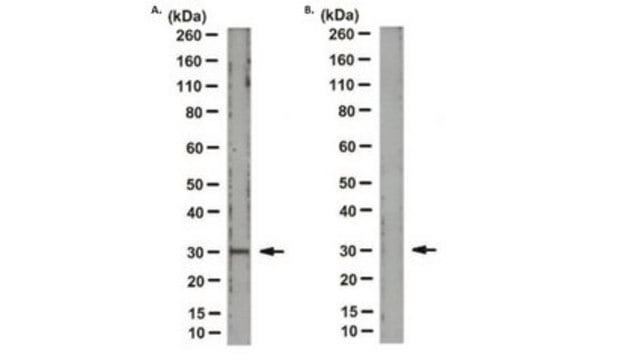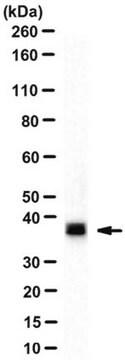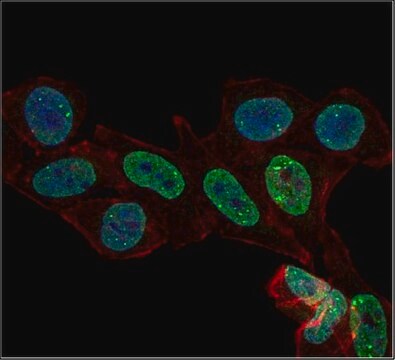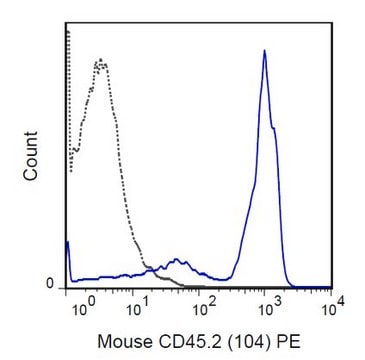MABN1857
Anti-SET-beta, clone 3D10E2
clone 3D10E2, from mouse
Synonym(s):
Protein SET-beta, HLA-DR-associated protein II beta, IGAAD, beta isoform, Inhibitor of granzyme A-activated Dnase, beta isoform, PHAPII, beta isoform, I-2PP2A, beta isoform, Phosphatase 2A inhibitor I2PP2A, beta isoform, TAF-I beta, Template-activating f
About This Item
Recommended Products
biological source
mouse
Quality Level
antibody form
purified immunoglobulin
antibody product type
primary antibodies
clone
3D10E2, monoclonal
species reactivity
rat, human
species reactivity (predicted by homology)
mouse (based on 100% sequence homology)
technique(s)
western blot: suitable
isotype
IgG1κ
NCBI accession no.
UniProt accession no.
target post-translational modification
unmodified
Gene Information
human ... SET(6418)
General description
Specificity
Immunogen
application
Neuroscience
Signaling Neuroscience
Western Blotting Analysis: 1.3 µg/mL from a representative lot specifically detected SET-beta, but not SET-alpha in Ramos human Burkitt′s lymphoma cell lysate (Courtesy of M. P. Vitek, Ph.D. Dr. Vitek is an employee and stockholder in Oncotide Pharmaceuticals, Inc. and a faculty member of Duke University Medical Center. Matters of potential personal and institutional conflict of interest are managed by the Duke University Medical Center Conflict of Interest Committee).
Quality
Western Blotting Analysis: 0.5 µg/mL of this antibody detected SET-beta in 10 µg of DU145 human prostate cancer cell lysate.
Target description
Physical form
Storage and Stability
Other Notes
Disclaimer
Not finding the right product?
Try our Product Selector Tool.
Storage Class
12 - Non Combustible Liquids
wgk_germany
WGK 1
flash_point_f
Not applicable
flash_point_c
Not applicable
Certificates of Analysis (COA)
Search for Certificates of Analysis (COA) by entering the products Lot/Batch Number. Lot and Batch Numbers can be found on a product’s label following the words ‘Lot’ or ‘Batch’.
Already Own This Product?
Find documentation for the products that you have recently purchased in the Document Library.
Our team of scientists has experience in all areas of research including Life Science, Material Science, Chemical Synthesis, Chromatography, Analytical and many others.
Contact Technical Service








